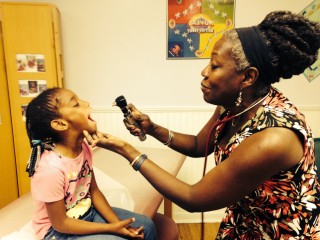A state Senate panel gave Georgia primary care doctors a potential financial boost Wednesday, putting millions of dollars into the state budget for a pay raise to deliver services to Medicaid patients.
The Senate Appropriations Committee passed a budget that awards $5.9 million in state funds for a Medicaid pay raise to ob/gyns, and $13.6 million to internists, pediatricians and family medicine physicians.

Those amounts surpass the House’s allocation of $3 million and $1.6 million to the respective groups.
The state funds would be matched by federal money.
The doctors can’t count on the raise yet. The Georgia budget has a ways to go before being finalized.
The Senate as a whole is expected to vote on the fiscal plan Friday, and then a conference committee between the two chambers will iron out the differences between each of their blueprints. It also must be approved by Gov. Nathan Deal.
The Senate action comes after a pay bump under the Affordable Care Act expired on Jan. 1.
That ACA raise, for internists, pediatricians and family medicine doctors, was funded entirely with federal money, and pushed their Medicaid pay to the level of Medicare reimbursement.
The Senate allocations approved Wednesday would restore about one-third of the ACA pay bump, according to the Georgia chapter of the American Academy of Pediatrics.
The chapter’s president, Dr. Evelyn Johnson of Brunswick, told GHN on Wednesday that the Senate move, if it holds up in the final budget, would allow pediatricians to provide necessary services to low-income children “without going bankrupt ourselves.”
“It’s just what we needed to keep our doors open,’’ said Johnson, a solo practitioner whose practice is 85 percent Medicaid patients.
Low Medicaid pay has led some doctors to close their practices, Johnson said, with some older ones retiring while the younger ones seek employment with hospital systems.
Medicaid, the joint federal-state program for the poor and disabled, serves more than 1.5 million Georgians, the majority of whom are children.
Most births in Georgia are covered by Medicaid, which pays doctors much less than private insurance.
Ob/gyns who treat Medicaid patients never got the ACA pay raise in the first place. For them, the money approved in the Senate would represent the first reimbursement hike in 14 years, said Pat Cota of the Georgia OBGyn Society.
“Hopefully this will stem the tide of obstetrical units closing’’ in Georgia hospitals, Cota said.
Since 1994, Cota said, 31 obstetrical units have shut down in Georgia, and 40 counties have no obstetrical care at all.

